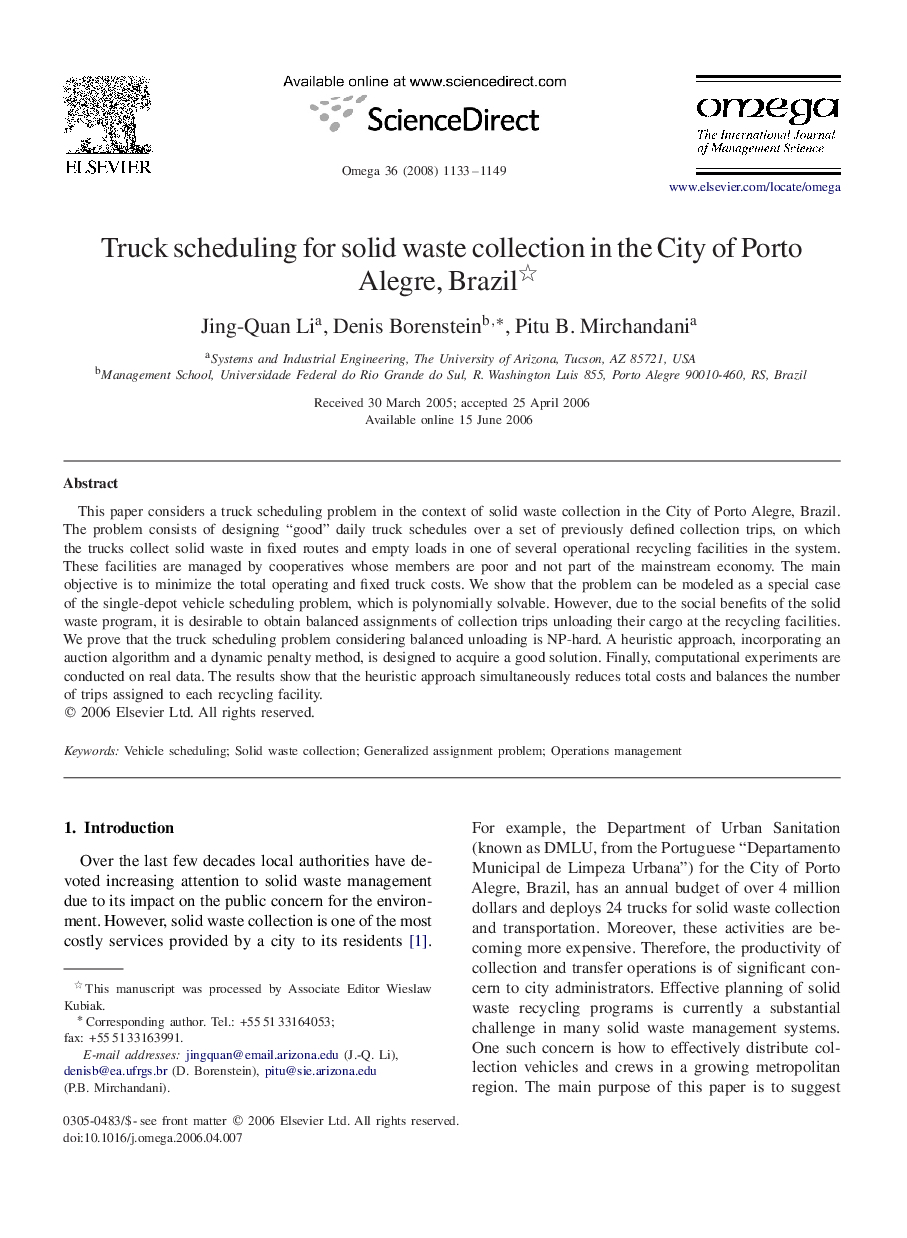| Article ID | Journal | Published Year | Pages | File Type |
|---|---|---|---|---|
| 1033057 | Omega | 2008 | 17 Pages |
This paper considers a truck scheduling problem in the context of solid waste collection in the City of Porto Alegre, Brazil. The problem consists of designing “good” daily truck schedules over a set of previously defined collection trips, on which the trucks collect solid waste in fixed routes and empty loads in one of several operational recycling facilities in the system. These facilities are managed by cooperatives whose members are poor and not part of the mainstream economy. The main objective is to minimize the total operating and fixed truck costs. We show that the problem can be modeled as a special case of the single-depot vehicle scheduling problem, which is polynomially solvable. However, due to the social benefits of the solid waste program, it is desirable to obtain balanced assignments of collection trips unloading their cargo at the recycling facilities. We prove that the truck scheduling problem considering balanced unloading is NP-hard. A heuristic approach, incorporating an auction algorithm and a dynamic penalty method, is designed to acquire a good solution. Finally, computational experiments are conducted on real data. The results show that the heuristic approach simultaneously reduces total costs and balances the number of trips assigned to each recycling facility.
